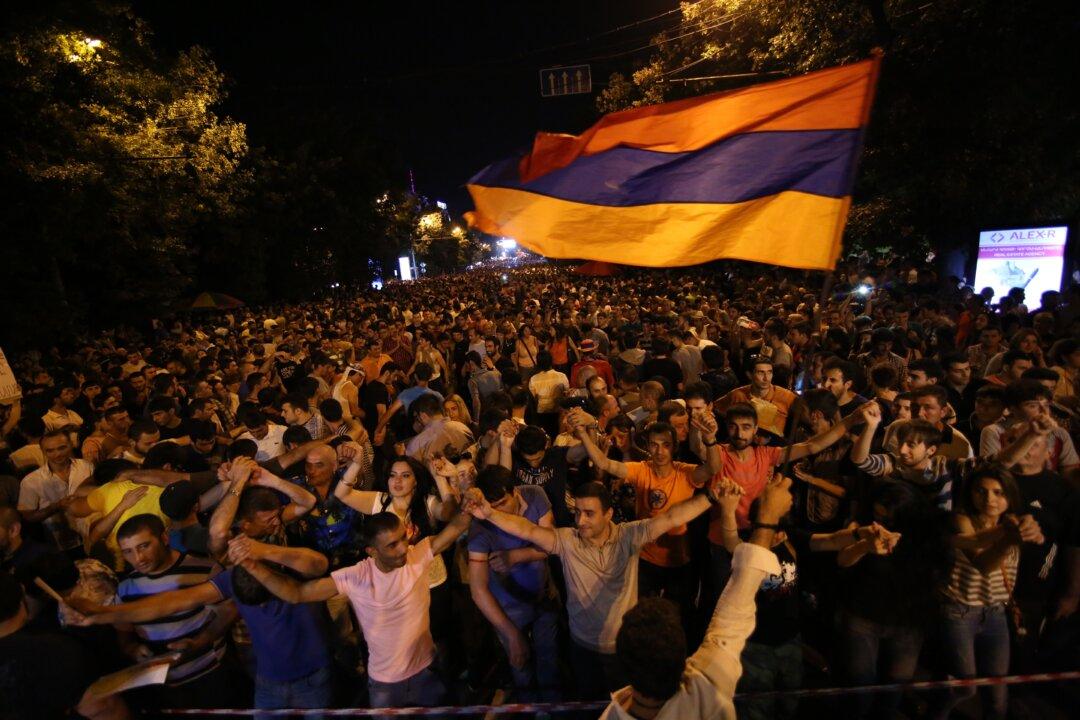YEREVAN, Armenia — Armenia’s premier has rejected demonstrators’ demand to annul a hike in electricity prices, a stance that signals no end in sight for the worst unrest the ex-Soviet nation has seen in years.
Prime Minister Hovik Abrahamyan said Thursday at a Cabinet meeting that the protesters, which swelled to more than 10,000 as the heat abated in the evening, are violating the country’s constitution and won’t succeed in bending the government’s will. He said the government could offer compensations to the poor to help cushion the price increase.
His comments came as thousands of protesters continued their round-the-clock blockade of the capital’s main avenue for a fourth straight day and demanded that President Serzh Sargsyan cancel the price hike.





